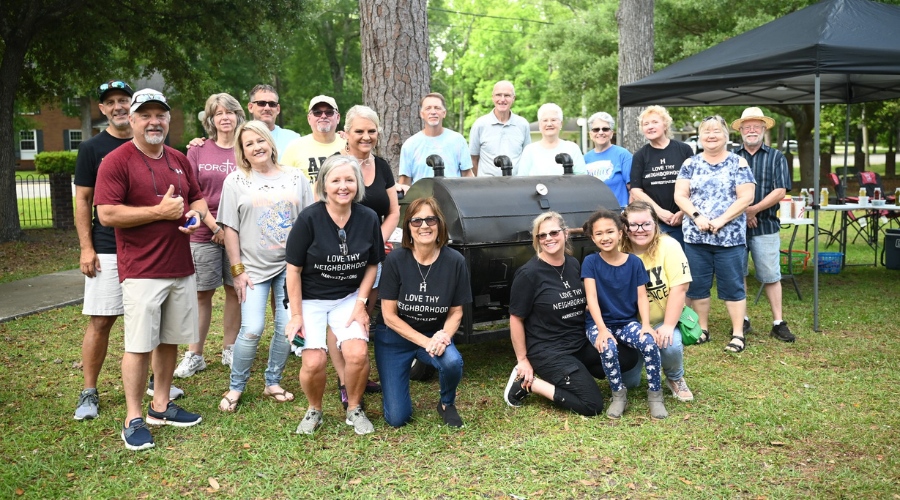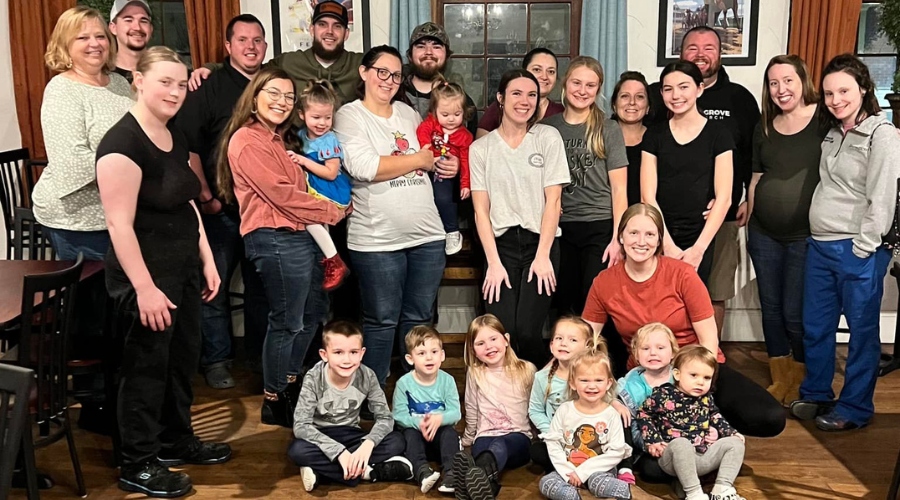Missional churches achieve more with less as pastors try a different format
Ben Greene
Pastor & writer
- Discipleship & spiritual formation

A widow's experience during her first visit to a South Carolina microchurch shows Joshua Sorrows that small, missional congregations undeniably advance God's plan.
The grieving woman found incomparable strength and kindness through the leaders of the Harvest Home, as the group is known. She later said such faithful support could never have occurred at the Sunday-centric church she has attended for 30 years.
"That's the difference; that's an example of the difference we really want," Sorrows said. "We want our Harvest Homes and how we approach ministry to foster environments like that."
He respects the alternatives, even as he now embraces this approach to church planting, because he has planted and pastored other congregations according to a Sunday-centric concept. Regardless of the method, his goal is to obey Christ's command to go and make disciples.
But, two years ago, as Sorrows prepared to plant Harvest, a deeper grasp of Acts 2:47 strongly redefined his methodology. That Scripture describes how several small groups accomplished Christ's command in Matthew 28 through regularly meeting in homes.
"They were in their communities,” Sorrows said. “They were meeting regularly together in homes at that point. That's what you see overseas. You're seeing the church explode because they have churches meeting in homes, and they're engaging through their social networks."
The method matters in America, not just in Acts
Harvest's format is also a response to a significant culture shift: a Sunday service is no longer a suitable “front door” of the church in America.
Sorrow's perspective changed “quite dramatically” about three years ago as he analyzed church attendance metrics. Many people, he said, only attend worship about one out of every five weeks.
"Instead of betting on that as our way to reach lost people, let's decentralize, let's have multiple opportunities in our groups and let's work through our social networks," Sorrows explained. "Share your story, be real, because that's where your power is."
Analysis and Acts have been helpful, but forming a church's particular identity around a new design hasn't been clear-cut, easy or smooth. A particular challenge, especially in the Bible Belt, has been preconceived notions about when and how the church gathers.
"When we started Harvest Homes, we had people wanting us to jump to a Sunday service immediately and having that be the centerpiece," Sorrows said.
Brady Gray, who started The Grove in Bardstown, Kentucky, has also faced that challenge.
"In that first year, I allowed other pastors and other leaders to influence me to do things that looked very attractional because that's what you're supposed to do for church," he said.
Both Gray and Sorrows know Sunday services stimulate spiritual growth, including salvations. Still, leaders in both settings committed to authentic friendships as the engine of discipleship and the main path to corporate Sunday activities.
"Let our homes be the front door," of the church, Sorrows said.

Microchurches empower people to become active contributors
Brady Gray has planned revivals or Vacation Bible Schools as a pastor in other churches to attract people to church and, hopefully, to Jesus. The Lord's plan for The Grove is moving toward people, not asking them to come.
These Kentucky believers don't even have a location to invite people to. Plus, they collaborate with town groups rather than competing with others' activities.
"A missional mindset is partnering with other organizations and people in our town that are doing the same type of community function and bringing Jesus into that space," Gray said.
A missional church, Gray explained, has helped some of his Bardstown neighbors reach their potential for Christ's purposes. The Grove embraces people's servant motivation and giftedness, even early in their faith.
"We are way too slow to let people volunteer," he said. "I truly view each person and family in our church as missionaries in our town. I want to encourage them, I want to train them, I want to walk with them."
For example, a disciple in Bardstown hadn't regularly attended religious events in years. But, motivated and supported by fellow disciples at The Grove, she volunteers with community organizations that house and feed people without homes.
"She's loving our community in that specific way," Gray said. "She's taking Jesus to them."
Harvest Home believers act similarly: Sorrows encouraged each Harvest Home to find a personal mission in January. The groups responded by regularly serving meals in a homeless shelter, taking care baskets to first responders and supporting Meals on Wheels volunteers.
Making more room for outreach is why Harvest and The Grove don't offer men's ministry, women's ministry and other typical church ministries.
"I don't want to fill a calendar for the church that would take space for people to have someone in their home, loving people like Jesus wants to love them," Gray said.
He honors those churches, including the largest of attractional ministries, who succeed in inviting nonbelievers to church to find Jesus as their savior. However, he saw, again and again, a challenge develop at these churches. Once people were baptized, the church started seeking the next lost person, leaving a new believer with little direction for reaching maturity.
"I saw people left and right who were clueless about the next step," Gray said. "That's the reason for the model of church we have."
Missional microchurches still use Sunday services
Glenn Herschberger, who planted Cities Cop Church, is navigating this spectrum from attractional to missional in a church for first responders in Minnesota.
The Twin Cities church has a Sunday worship service but emphasizes relationships through small gatherings with police officers, firefighters and other emergency personnel. For example, Cities Cop Church disciples offer an Alpha course at a cigar bar to connect with people outside the church building.
"The key question we ask in our church today is, 'How are you going to connect with people who are lonely, disconnected, hurting?" he said.
At Harvest Home and The Grove, Sunday services specifically offer encouragement and training of disciples. Plus, the services celebrate God's work in third spaces, Monday through Saturday. Therefore, those moments intentionally offer less to nonbelievers or new Christians than attractional services.
"That's when we dive into Scripture, teaching and training on missional living," Gray said.
Fostering connection with people so they live in the light of the world
Around the United States, Converge pastors planting missional groups have created a legitimate alternative to Sunday-centric services. Sorrows said more than half of the 24 salvations so far at Harvest Home had come outside of Sunday morning.
Therefore, the church continues emphasizing missional living, confident that Christians are a city on a hill. For example, one Harvest Home fed and honored Meals on Wheels volunteers because they spend more time caring for others than themselves.
At the same time, another religious group set up an information booth in the same park, waiting for people to come to them. That contrast makes clear to Sorrows the value of the missional approach.
"Most of the unbelievers don't want to come to church, but they'll go to Harvest Homes because they're fostering connection," he said. "We want to be in our neighborhoods and engage the people around us."
Converge's 10 districts have committed to deploying 312 church planters before 2026. Read more inspiring church planting stories and learn about the goal to send out 312 church planters in five years.
Ben Greene, Pastor & writer
Ben Greene is a freelance writer and pastor currently living in Massachusetts. Along with his ministry experience, he has served as a full-time writer for the Associated Press and in the newspaper industry.
Additional articles by Ben Greene

